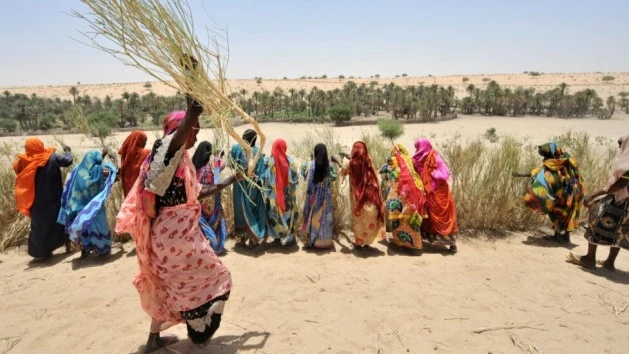Clean cooking fuel is essential in averting respiratory diseases

GOVERNMENTS in the world Tanzania included have long being fighting against climate change in various ways to avert high rates of air-pollution in its atmospheric space.
However, the use of clean cooking energy is among the basic methods being encouraged and adopted by most of the governments, including Tanzania.
The importance of clean cooking energy agenda is to successfully advance the clean cooking methods which are already initiated with a view to contribute towards protecting the environment, climate, and people’s health
The practical agenda with clean cooking solutions has the potential to reduce smoke emissions in kitchens and the amount of biomass, thus lead to reduction in deaths from smoke-related illnesses.
Statistics from the World Health Organization (WHO) shows that lack of access to clean cooking methods has affected almost over 2 billion people worldwide and more than half of it is in Africa continent.
Health experts warns that unclean cooking over open fires by using charcoal, firewood, agricultural waste, and animal dung which is turned as fuel, is a dangerous method as users inhale harmful toxic fumes and smoke which have dire consequences on human health.
According to experts, exposure to indoor smoke from cooking and heating has been linked to a host of diseases including acute respiratory infections, chronic bronchitis, asthma, and tuberculosis as it produces toxic pollutants into the environment and endangers health status, hence causing some detrimental effects on human body health.
Dirty cooking energy methods has been the leading cause of respiratory diseases which are the second leading cause of premature deaths in Africa. It is disappointing to note that, women and children account for most of the lives lost, the vast majority of them are in sub-Saharan Africa region.
Statistics by the Ministry of Health shows that, about 17 percent of such related cases have been reported on annual basis mostly from rural areas.
A medical specialist who deals with lung infections at the Muhimbili National Hospital (MNH) in Dar es Salaam, Dr Pauline Chale told The Guardian that about 10 million patients are affected with diseases related with lung on annual basis countrywide.
According to her, most patients are highly affected due to regular contacts with carbon emission resulted by use of biomass fuel which is dangerous to their health.
Giving out statistics, she told The Guardian that over 33,024 people die prematurely annually from illnesses that are attributable to indoor air pollution.
“Women and children are most affected groups as they spend many hours a day in the kitchen exposed to the high levels of air pollutions,” she added.
Dr Chale noted that within three months, MNH being the biggest referral hospital in the country accommodated 480 patients with related diseases and yet it has fewer medical specialists
Apart from respiratory diseases, defectives on human eyes are also attributed to continued use of biomass in local communities whereas to avert the situation women especially those in rural need to be educated on the importance of using clean energy for cooking.
National statistics shows that, biomass accounts for the larger usage close to 90 percent of the primary energy consumption in most households, whereby 63.5 percent of the households use firewood as the main source of cooking energy, and 26.2 percent use charcoal.
The remaining share comprises of 5.1 percent liquefied petroleum gas (LPG) and 3 percent electricity, while the remaining 2.2 percent use alternative energy sources.
Statistics further shows that, there are few households using clean cooking energy solutions countrywide mainly due to financial constraints as the use of clean cooking energy is somehow expensive.
Users are categorized in three groups such as those using gas cylinders (5 percent), electricity (3 percent) while 2 percent are using other reliable clean energy sources.
Recently, the government through the Ministry of Energy launched a ten year National Strategy that overlook the use of clean cooking energy (2024-2034) with a focus to make sure that about 80 percent of Tanzanians would be using clean cooking energy by the year 2034.
The 73 paged report which was unveiled by President Samia Suluhu Hassan highlighted different initiatives being undertaken in the transition to clean cooking solutions despite the fact that there are still barriers in adoption in both urban and rural areas.
The Head of State stressed her commitment to transforming Tanzanians from using firewood and charcoal to clean cooking energy, setting a target of converting 80 percent of the population by 2034.
The President was of the view that there is no alternative as it’s high time for people to use clean cooking energy which gives out little volume of poisonous smoke to the atmospheric air spaces in order to avert the associated health risks.
Under the strategy which aims to ensure safety, sustainability and effectiveness of the availability of cooking energy, Tanzanians are likely to save time and the environment.
In her recent remarks, Deputy Minister for Energy, Judith Kapinga said that in order to achieve the set goals, the government has put in place nine important strategies in its move towards attainment of clean cooking energy.
These includes among others the infrastructural reforms that would enable access gas with ease, to increase the technology and innovations, prevention of imports of electric apparatus that consumes large volumes of electricity power.
Others are effective collaboration with private stakeholders for disseminating education to the people in the country on the importance of clean cooking and avoid use of biofuels.
Cost reduction measure must also be put in place whereby the government has planned that Tanzanians should buy cooking apparatus such as stoves at cheapest price rates.
Another strategy is reduction of electricity through Rural Electric Authority (REA) to enable the majority rural population has an access to power, and the availability of gas must also be in place.
On May 14th this month, a high-level global Summit on Clean Cooking Energy was held in Paris-France and attracted participants from 55 countries who were represented by three Head of States and 23 ministers.
Tanzania delegation was led by President Samia who in her address told participants that, “Ensuring clean cooking access for all in Africa needs adequate, affordable, and sustainable financing for appropriate solutions and innovations”.
The summit has delivered an emphatic commitment to an issue that has been ignored by too many people for too long. Reduction of emissions and restoration of forests is a concrete steps on how governments, institutions and the private sector can work together to solve the clean cooking challenge.
Top Headlines
© 2024 IPPMEDIA.COM. ALL RIGHTS RESERVED

























